

On July 22, 2025, the China-Brazil Anti-Cancer Summit opened with great excitement, bringing together the medical communities of both nations. The summit was jointly organized by China Anti-Cancer Association (CACA), the Brazil National Academy of Medicine (ANM), and the World Association for Integrative Oncology (WAIO). It attracted audiences from 11 countries, including China, Brazil, United States, Canada, Argentina, Australia, Uruguay, Venezuela, Colombia, Paraguay, and Nepal, with live-stream views reaching 17 million.
The summit featured top medical experts from China and Brazil, showcasing a strong academic lineup. Chinese participants included: Prof. Daiming Fan, President of CACA and President of WAIO; Prof. Ying Wang, Vice President of CACA and Secretary General of WAIO; Prof. Jun Ma, Executive Vice President of Sun Yat-sen University Cancer Center and Chairman of CACA Nasopharynx Cancer Committee; Prof. Yongxiang Zhao, Vice President of Guangxi Medical University and Chairman of CACA Biomedicine Committee. Brazilian experts included: Prof. Eliete Bouskela, President of ANM and Professor at Rio de Janeiro State University; Prof. Maurício Magalhães Costa, Member of ANM and Bord of Director of WAIO; Associate Prof. Maria Del Pilar Estevez-Diz, Director of Cancer Institute in University of São Paulo; Prof. Jerson Lima Silva, Professor at Federal University of Rio de Janeiro; Dr. Leandro Ryuchi Luamoto from University of São Paulo. The summit was co-chaired by Prof. Costa and Prof. Wang Ying.
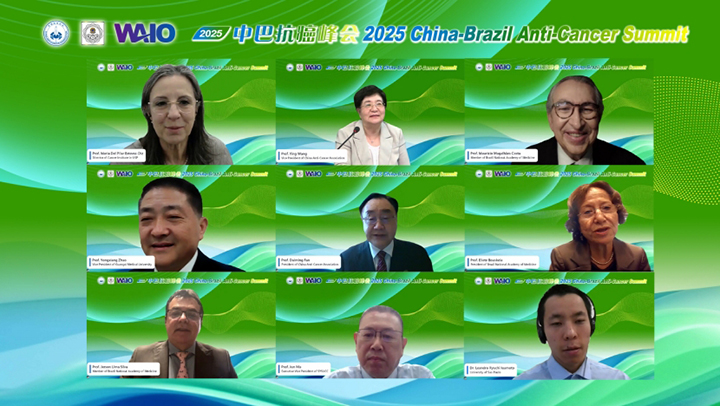
Opening Speeches
Prof. Fan praised ANM for its 196-year contribution to global medicine and highlighted CACA’s role in China’s cancer prevention efforts. He noted that since signing an MOU agreement in 2024, the two organizations have made significant progress in joint research, expert exchanges, and training young leaders. Prof. Fan stressed that fighting cancer is a shared challenge and called for global collaboration to turn hope into action.
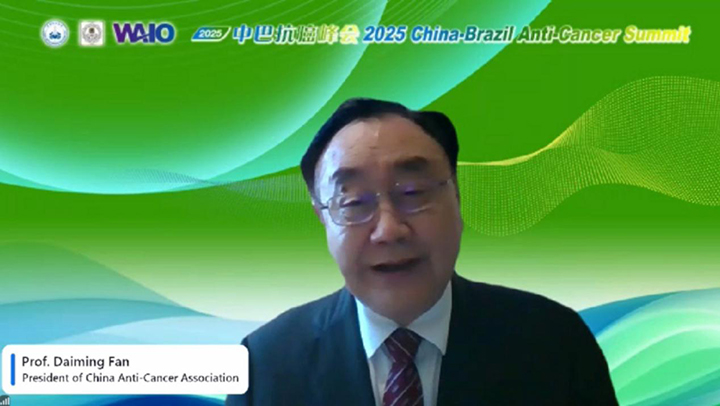
Prof. Eliete Bouskela commended CACA’s achievements under Prof. Fan’s leadership, saying Chinese expertise offers valuable lessons for Brazil. She emphasized the need for international cooperation in medical research, urging scientists to step out of their "ivory towers." Bouskela expressed confidence that stronger ties between China and Brazil would benefit global cancer treatment.
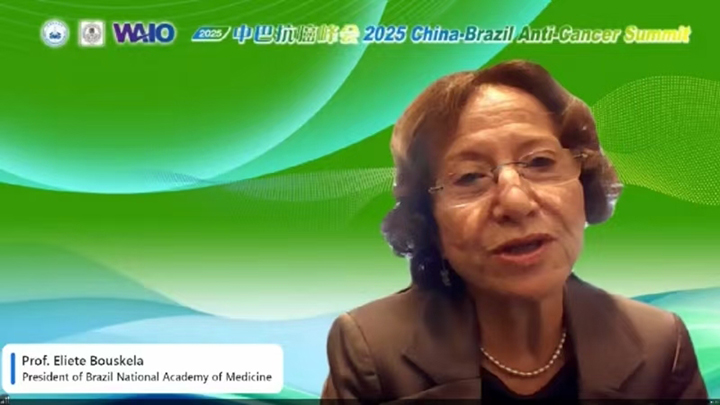
Keynote Speeches
Prof. Maria Del Pilar Estevez-Diz (Brazil) discussed a low-cost HPV-specific ctDNA test to detect early signs of cervical and anal cancer. The test identifies patients at high risk of relapse, allowing timely treatment with PD-1 inhibitors. Initial trials with 16 patients showed promising results, offering an affordable solution for developing countries.
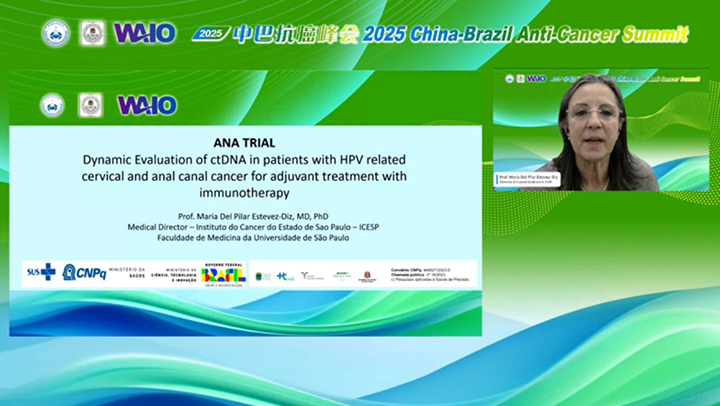
Prof. Jun Ma (China) shared breakthroughs in Nasopharyngeal cancer (NPC) treatment. His team proved that combining immunotherapy with chemotherapy and radiation improves outcomes while reducing side effects. Their work has influenced global treatment guidelines.
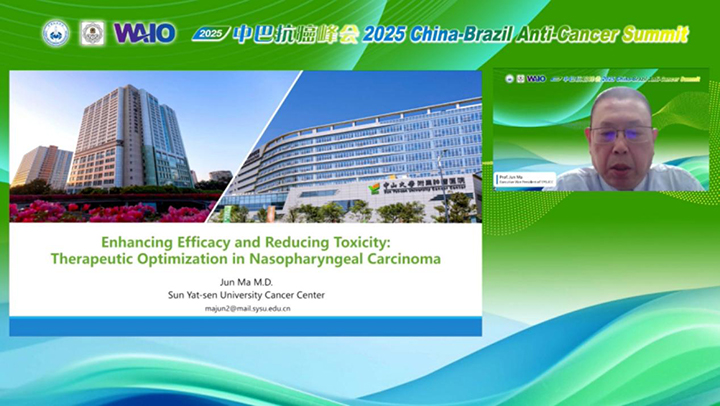
Prof. Jerson Lima Silva (Brazil) explored how mutated p53 proteins form harmful clumps in over 50% of cancers—similar to those in Alzheimer’s. His team found that heparin and experimental drugs like PRIMA-1 can break these clumps, restoring p53’s cancer-fighting role.
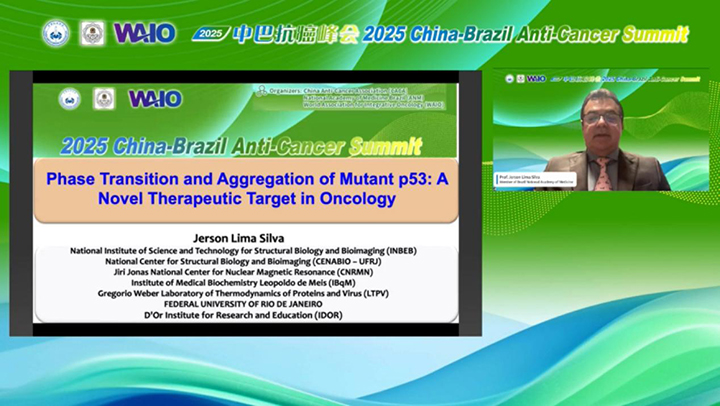
Prof. Yongxiang Zhao (China) presented a genetically edited monkey model for liver cancer, aiding drug development. His team also created an engineered virus (NDV-GT) that targets tumors, achieving a 90% disease control rate in trials for 13 cancers. Published in 《Cell》, the work was hailed as a major breakthrough by 《Nature》.
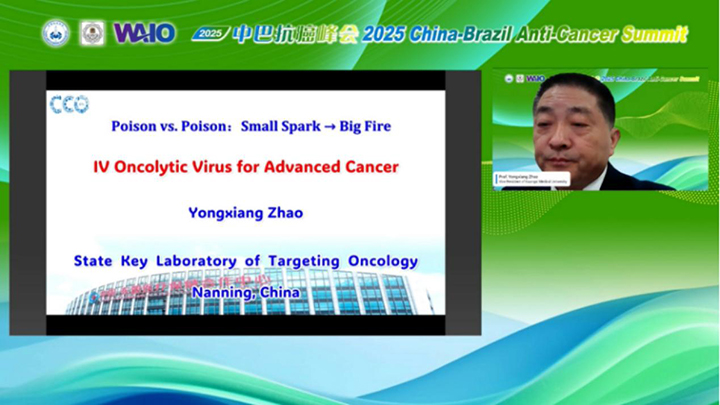
Dr. Leandro Ryuchi Luamoto (Brazil) traced the rise of traditional Chinese medicine (TCM) in Brazil, from its introduction by immigrants to its official recognition in 1985. Today, acupuncture is used in pain management and cancer care, with Brazil being the first country outside China to offer residency programs in acupuncture.
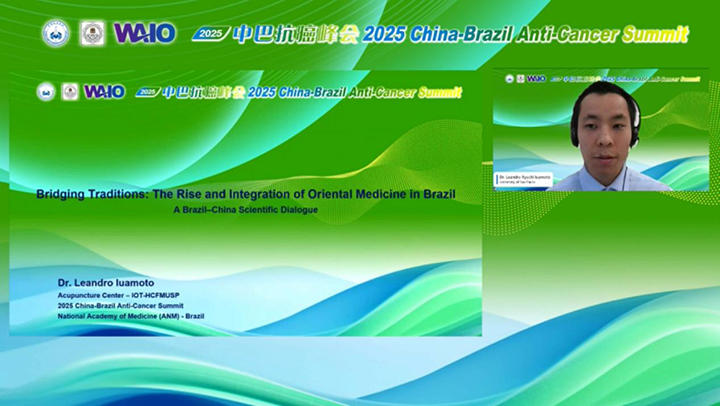
Panel Discussion
Experts debated topics like HPV’s link to NPC (Prof. Ma clarified it’s mainly tied to EB virus in China) and ctDNA’s potential for other cancers. Brazilian researchers shared their use of Zika virus to target brain tumors, echoing Prof. Zhao’s "fight poison with poison" approach.
Prof. Wang and Dr. Luamoto discussed combining acupuncture and herbs for cancer symptoms, with Dr. Luamoto noting electroacupuncture’s strong pain-relief effects.
Prof. Costa proposed doubling the summit’s frequency to twice yearly, a suggestion Prof. Fan endorsed amid applause.
Conclusion
The summit showcased the power of China-Brazil collaboration in cancer research, bridging East and West under the spirit of "medicine without borders." As both nations advance together, their innovations promise new hope for patients worldwide.
Written by: International Exchange Department